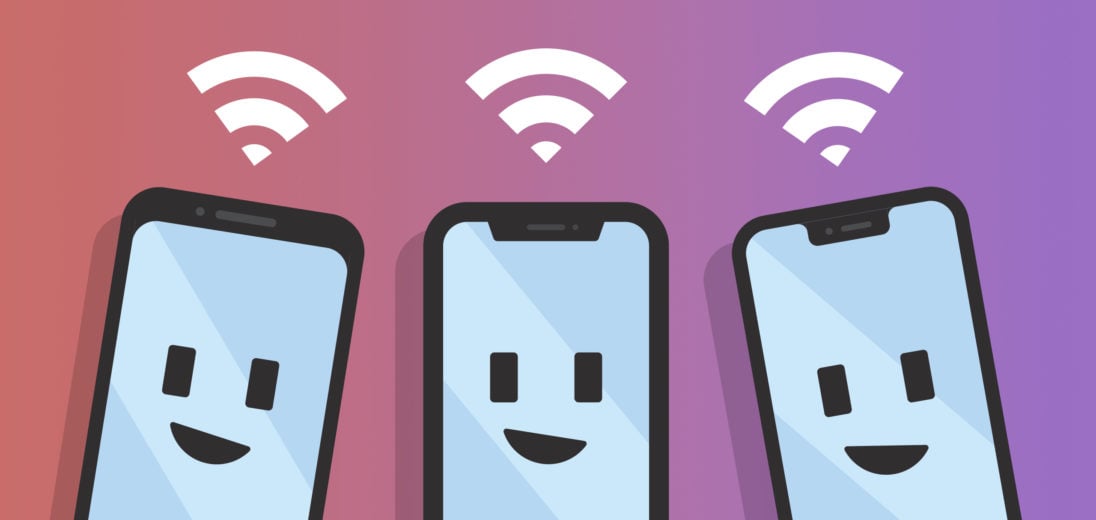You're interested in buying a new cell phone and you want to make sure it'll have good reception. Several factors influence the quality of your cell service. It can be difficult to understand how your phone will perform, especially in spotty areas. In this article, I'll explain which cell phones have the best reception and how to make sure you get the best coverage!
What Determines Cell Phone Reception?
The quality of your phone’s hardware plays a role in its cellular reception. Modern smartphones have antennas that transmit and receive radio waves to and from nearby cell towers. Your phone understands these digital signals with the help of the modem, which translates the waves.
However, a phone with the best antenna in the world is useless if your wireless carrier doesn’t have coverage in your area. Check out our coverage maps to make sure your wireless carrier delivers service where you live. It's a good idea to also check the coverage where you live and places you visit often. That way, you can be sure you'll always have good reception.
Which Cell Phones Gets The Best Reception?
A 2018 PC Magazine report found that the LG V40 had the best cellular reception. However, it's important to keep in mind that all modern smartphones have excellent antennas. The average user won't know notice the difference between an LG V40 and an iPhone 11.
Focus on finding a cell phone you really like from a wireless carrier that provides great service where you live.
My Reception Is Bad, Should I Get A Signal Booster?
A cell phone signal booster is a device that amplifies the existing signal in your area. A signal booster can help you get better reception in your home, vehicle, or office. Check out our article about the best cell phone signal boosters to learn if you might benefit from setting one up in your home, car, or office!
Factors That Can Affect Your Reception
Even if you have a phone with the best antennas, there are a few other factors that can affect your reception. For example, if too many people are using cellular data in the same location at the same time, the network may be throttled. This is common at sports events and concerts where everyone is in one space.
Another cause for concern is data throttling on your account. A lot of wireless data plans used to have overage charges if you used up all your monthly data allowance before the end of the period. However, most prepaid plans don't have overage charges anymore.
Instead of charging for overages, carriers throttle your data to a slower speed after you've used up all your allotted data. Although you aren't getting any extra fees, your download and upload speeds will slow down to a crawl.
If you find that you are running out of data often, it may be time to look into an unlimited data plan. If you'd rather not fork up the extra cash for unlimited data, you can try our tips on data saving best practices. We have data saving tips for Android and iOS.
Upgrading Your Data Plan
Now that you know that it's not necessarily about which cell phones get the best reception, you might be interested in getting an unlimited plan. However, unlimited plans can be expensive, and although the chances are low that they will throttle your usage, there are better options out there.
Rather than getting an unlimited plan, if you are using a lot of data each month you might find yourself better off with an 8 GB or higher prepaid plan. For example, the AT&T 8 GB prepaid plan has plenty of data to suit your needs without being as expensive as an unlimited plan.
Verizon also has a 15 GB prepaid plan if you need even more data. It's not nearly as expensive as an unlimited plan but still gives you plenty of data to work with.
You Can Hear Me Now!
You're now an expert on what factors into getting good service on your phone. Make sure to share this article on social media to teach your family and friends which cell phones get the best reception.
Need help choosing a wireless carrier? Leave a comment below!
